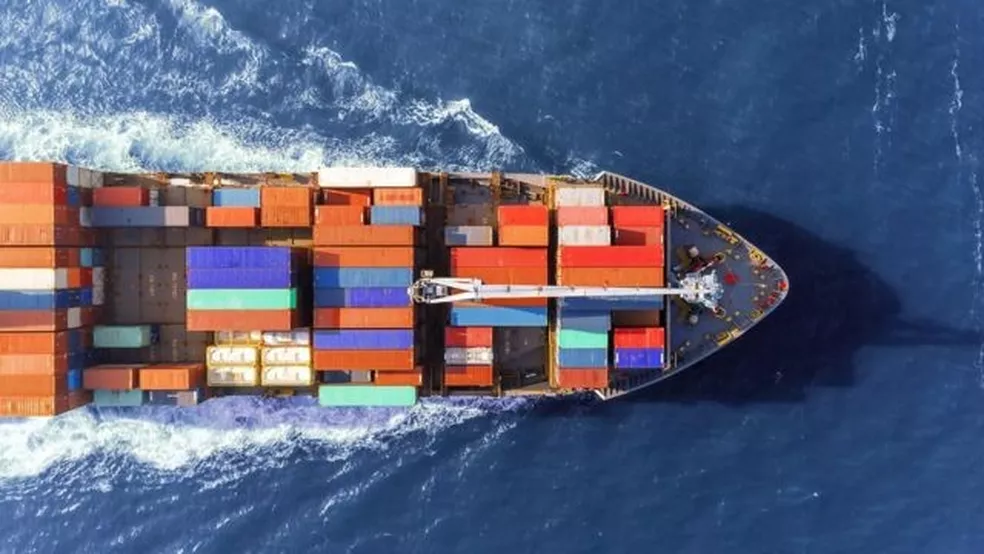
International Maritime Organization Sets Ship Decarbonization Goals
Nov, 04, 2024 Posted by Gabriel MalheirosWeek 202442
The International Maritime Organization (IMO) is closely monitoring sustainability and automation efforts within the shipping industry. As the agency responsible for enhancing maritime safety, protecting the sector’s activities, preventing ship pollution, and addressing legal issues, the IMO is central to advancing the industry’s regulatory framework.
Headquartered in London, the United Nations specialized agency was founded in Geneva in 1948, holding its first meeting in 1959. Brazil joined as one of the 176 Member States in 1963. Additionally, the IMO includes 66 intergovernmental organizations with observer status and 85 international non-governmental organizations in a consultative role.
“The strategic plan for 2024-2029 aims to elevate awareness of the sector’s role in global trade, focusing on revising, developing, implementing, and enforcing regulations to meet the goals of the UN’s 2030 Agenda for Sustainable Development and the Decade of Ocean Science,” explains Eliane Octaviano, legal scholar, director of the Maritime Law Academy (MLAw), and columnist for A Tribuna.
Maritime, port, and regulatory lawyer Thiago Miller, also a columnist for A Tribuna, elaborates on the IMO’s functions, noting its role in standardizing and guiding port operations, vessel requirements, and cargo handling—what the agency calls “facilitation.”
“Standardized practices streamline international trade, preventing widely divergent national laws and supporting strong international relations in maritime logistics. Furthermore, the IMO plays a critical role in safeguarding seafarers’ lives through life-saving protocols and essential training to reduce occupational hazards,” he adds.
Looking Ahead
In a statement, the IMO outlined its priorities across three main areas. First is maritime decarbonization, with short-, medium-, and long-term measures to reduce greenhouse gas emissions, targeting net-zero emissions near 2050. Short-term mandatory actions took effect in 2023, directing vessels to meet energy efficiency and carbon intensity standards.
“Medium-term proposals are currently under review by member states, including a maritime fuel standard to reduce greenhouse gas intensity and an economic measure based on emissions pricing. Once finalized, they are expected to be adopted in 2025 and come into effect by 2027,” the agency stated.
Additional Goals
The second priority is digitalization and automation, especially in port procedures. Since January 1, all Member States have been required to implement a Maritime Single Window system designed to streamline ship port entry processes, reduce time spent in port, and improve overall efficiency. This concept has been used in Brazil since 2011 through the Porto Sem Papel (Paperless Port) program, now managed by the Ministry of Ports and Airports.
This focus area also includes regulating autonomous ships, which require minimal or no human intervention. “Autonomous and remotely controlled vessels are currently undergoing trials in select maritime zones, though predictions suggest they will be mainly suited to short routes,” the IMO commented.
The IMO is drafting the International Code of Safety for Maritime Autonomous Surface Ships (MASS Code) to regulate these vessels. Optional standards are expected in 2025, and mandatory standards will follow.
The third priority is ocean protection. The theme for World Maritime Day 2025, “Our Ocean, Our Responsibility, Our Opportunity,” underscores the ocean’s critical role in the global economy, with over 80% of world trade moving by sea. “Shipping, as the largest sector operating in oceanic space, has a central role in marine environmental protection and resource management,” the IMO highlighted.
Drafting a Global Code
Brazilian lawyer Andréia Propp Arend participated in the Maritime Safety Committee and intercessional meetings on the MASS Code, both online and in person, as a doctoral candidate in maritime studies at the Brazilian Naval War College and with authorization from the Brazilian Navy.
“Discussions cover predetermined topics, following the MASS Code drafting schedule, addressing principles, structure, chapter organization, terminology, and potential amendments to IMO instruments,” she explained.
Arend noted that at the 108th session of the Maritime Safety Committee in May, completion of the non-mandatory MASS Code was projected for May 2025. The mandatory version is scheduled for July 2030 and is expected to take effect on January 1, 2032. The 109th meeting will occur from December 2 to 6.
Areas for Improvement at the IMO
Despite addressing diverse and significant topics through its committees, maritime, port, and regulatory lawyer Thiago Miller believes the IMO could improve on certain issues.
For instance, Miller notes that the agency does not currently discuss stricter oversight or regulation of ships flying flags of convenience linked to environmental degradation or poor labor practices.
“Many nations maintain large fleets despite minimal coastlines, enabling tax manipulation to the detriment of actors following protocols,” he states.
He also underscores the importance of IMO oversight in ship recycling. “There is already a drafted Convention awaiting further state adoption, which would enhance safety and environmental protection,” he concludes.
Source: A Tribuna
Original news report: https://www.atribuna.com.br/noticias/portomar/descarbonizac-o-dos-navios-e-meta-da-organizac-o-maritima-internacional-1.440030
-
Ports and Terminals
Jun, 07, 2023
0
Working groups gather funding strategies to secure Babitonga Bay dredging
-
Grains
Sep, 20, 2022
0
Meager import appetite in China: soybeans down 24.5%; corn down 44.4%
-
Ports and Terminals
Jul, 25, 2022
0
Cesari Group buys company to enter the port market
-
Meat
Dec, 11, 2019
0
Beef exports expected to end 2019 with new records in volume and sales

